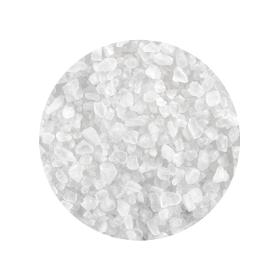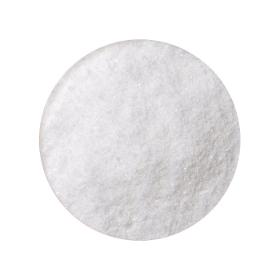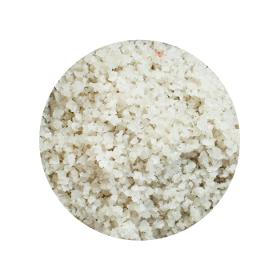- europages
- >
- COMPANIES - SUPPLIERS - SERVICE PROVIDERS
- >
- traditional salt
Results for
Traditional salt - Import export

ATLAS MATERIAL TESTING TECHNOLOGY GMBH
Germany
SF cabinets are used to quickly qualify a coating or material on a pass-fail basis, or determine the probability of corrosion of a specific material. SF applications include: Architectural, Chrome Plating, Fastners, Government, Military, Paints/Coatings, Laminated/Coated Plastics and Steel Structur Durable steel cabinet with 55 gallon (208 l) solution reservoir with mixing system on stand Cabinet heated by water jacket on four sides and bottom Exposure zone lined with corrosion-resistant PVC sheets Clear cover allows viewing of test conditions Peaked cover prevents dripping of condensation onto samples Water seal Heated humidifying tower with air relief valve Automatic DI water fill to humidifying tower Automatic solution level control Digital temperature control and readouts Certified air pressure gauge accurate to 1 psi (6.9 kPa) Integral over-protection on all heaters Low water cut-off protection on humidifying tower Two digital temperature controllers Specifications and Dimensions (Testing Volume, Exposure Zone Dimensions, External Dimensions) SF260 - 420L, 0.76 x 0.56 x 0.99 m, 1.07 x 0.97 x 1.52 m SF500 - 555L, 0.76 x 0.74 x 0.99 m, 1.22 x 1.07 x 1.52 m SF850 - 860L, 1.14 x 0.76 x 0.99 m, 1.57 x 1.07 x 1.52 m SF2000 - 1930L, 1.83 x 1.07 x 0.99 m, 2.44 x 1.37 x 21.60 m SF3600 - 2850L, 2.36 x 1.22 x 0.99 m, 3 x 1.52 x 1.60 m SF4200 - 3680L, 3.05 x 1.22 x 0.99 m, 3.81 x 1.52 x 1.60 m Recorder, 2-pen circular chart, wet bulb and dry bulb UL approval Shut-down timer SF combination exhaust condenser and wet bottom drain SF exhaust recirculation system Precision air regulator, accurate to 0.01 psi (0.069 kPa) External collection package. Horizontal dispersion system High temperature package Chromasoft software High voltage kit (over 480 VAC) High capacity oil & water extractor Custom sizes (extra height or any LxW) and configurations (pass-through electrical/mechanical ports)

VEHGRO B.V
Germany
"Origin and extraction This pure natural table salt is produced on the coasts of the Mediterranean Sea. The saltworks are located in large natural parks or nature reserves, away from industry and large cities. The sea water is channelled through centuries-old canals to the salt marshes. The wind and sun gradually increase the salt concentration. The salt begins to crystallise and sinks to the bottom of the saltworks and is then harvested with special tools. After extraction, the salt is dried and sieved into different grain sizes. The Mediterranean sea salt is a purely natural product, free from chemicals and additives. Today, salt production still takes place according to ancient traditions in Mediterranean salt marshes. The extraction areas are refuges for animals and form an important habitat for many endangered bird and plant species. Here, the commercialisation of sea salt extraction contributes to the preservation of a unique coastal landscape. Tas…"
Request for a quote
VEHGRO B.V
Germany
"Origin and extraction This pure natural table salt is produced on the coasts of the Mediterranean Sea. The saltworks are located in large natural parks or nature reserves, away from industry and large cities. The sea water is channelled through centuries-old canals to the salt marshes. The wind and sun gradually increase the salt concentration. The salt begins to crystallise and sinks to the bottom of the saltworks and is then harvested with special tools. After extraction, the salt is dried and sieved into different grain sizes. The Mediterranean sea salt is a purely natural product, free from chemicals and additives. Today, salt production still takes place according to ancient traditions in Mediterranean salt marshes. The extraction areas are refuges for animals and form an important habitat for many endangered bird and plant species. Here, the commercialisation of sea salt extraction contributes to the preservation of a unique coastal landscape. Tas…"
Request for a quote
VEHGRO B.V
Germany
"Origin and extraction This pure natural table salt is produced on the coasts of the Mediterranean Sea. The saltworks are located in large natural parks or nature reserves, away from industry and large cities. The sea water is channelled through centuries-old canals to the salt marshes. The wind and sun gradually increase the salt concentration. The salt begins to crystallise and sinks to the bottom of the saltworks and is then harvested with special tools. After extraction, the salt is dried and sieved into different grain sizes. The Mediterranean sea salt is a purely natural product, free from chemicals and additives. Today, salt production still takes place according to ancient traditions in Mediterranean salt marshes. The extraction areas are refuges for animals and form an important habitat for many endangered bird and plant species. Here, the commercialisation of sea salt extraction contributes to the preservation of a unique coastal landscape. Tas…"
Request for a quote
VEHGRO B.V
Germany
"Origin Celtic sea salt is also called ""Sel de Guarande"" and comes from France. The famous Guerande sea salt has been harvested for over 2000 years according to ancient tradition by salt farmers of Brittany, France. This salt is a low-sodium salt. The salt fields consist of grey-blue clay. This clay gives important minerals and trace elements to the salt crystal and this gives the Atlantic sea salt its unique gray colour and unmistakable flavor. Taste and use The Celtic sea salt with its strong salty taste is suitable for many dishes. Due to its high residual moisture, it is not suitable for use in a salt mill. It is an excellent replacement for ordinary table salt."
Request for a quoteDo you sell or make similar products?
Sign up to europages and have your products listed

VEHGRO B.V
Germany
"Resources and history Kala Namak, also called black salt, is a salt granulate from Pakistan. This salt is naturally pure and unrefined volcanic mineral salt and is processed according to centuries-old traditions. The salt is characterised by a high water sulphide and iron content. Traditionally, this salt was extracted from mines in Pakistan. The raw material has to be heated in a cooker for 24 hours while it was in a sealed ceramic container together with charcoal. During these 24 hours, the sodium sulphate is converted into hydrogen sulphide and sodium sulphide, which gives Kala Namak its dark colour. After heating, it was cooled, stored and aged. Taste and Use Kala Namak gives food a sulfur taste similar to the taste of boiled eggs. In Indian cuisine, this is highly desirable and Kala Namak is used as a flavoring for fruit salads, chutneys or in the popular Raitas. The salt is especially recommended with vegetables and exotic fruits, but also with f…"
Request for a quoteResults for
Traditional salt - Import exportNumber of results
7 ProductsCompany type
Category